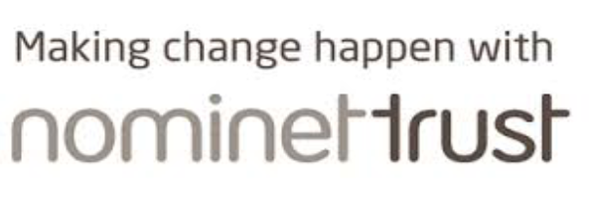This blog was originally written and posted by Nominet Trust, see the original here. As one beneficiary of their Social Tech Seed Fund, we're pleased to repost it here:
By: Charlotte.Knight
On: 18th May 2016
Last month, we caught up with our October 2015 cohort of Social Tech Seed funded ventures to hear about their experiences, six months into their Nominet Trust funding.
From developing life-saving heart rate monitors to gamified learning apps, it’s safe to say this group of social tech ventures are doing some incredibly inspiring work and learning a lot along the way. We thought it would be useful to share some of their key insights to help other social tech startups just starting out.
Insight #1: Make it accessible
Digital Families is a collaborative project between MakerClub and the Learning and Work Institute. They have created innovative learning courses - covering everything from programing and coding to robotics - to ensure disadvantaged children, and their families, aren’t left on the wrong side of this skills gap.
In six months the team have taken Digital Families from a basic prototype to a fun and effective learning tool and during the initial learner trial they were overwhelmed by the responses from the children and parents that took part…
“I like learning how to programme things. The best thing is everything about the learning and being with Mum and Dad.” Lizzie aged 10
The team found that lack of accessibility was a huge barrier for the young learners. This included a lack of support and understanding at home, and the use of tech jargon which affected the families’ access and engagement in the programme. The team learnt that the platform had to be accessible to the learners and their families to retain engagement and continued support for the learners at home.
Insight #2: In house tech is essential
Millie Moreorless’s Cara Jessop shared their journey in developing an iOS game which aims to help children with Down’s Syndrome improve their basic number skills, equipping them to become more independent adults. The Amazing Adventures of Millie Moreorless launched on iOS in time for World Down’s Syndrome Day 2016. Proving a hit it became number 1 in the kid’s 6-8 category on the UK app store; had 40,000 downloads in the first week; and received an Editor’s Choice award from the Children's Technology Review.
The Millie Moreorless team found that in house tech was essential in keeping up the rapid pace of iterations needed to get the app ready for launch and took on an in-house developer with their Social Tech Seed funding.
Insight #3: Think about sustainability
Barry Farrimond, CEO of OpenUp Music – an organisation which harnesses technology to enable young musicians with disabilities to play instruments with any part of the body – shared their journey so far.The project is certainly making waves, having launched the South West Open Youth Orchestra (SWOYO), the UK's first disabled-led regional youth Orchestra in September 2015. SWOYO gave their debut performance at Bristol Cathedral earlier this year - receiving media coverage from The Sun and Independent with TV appearances in the pipeline.
Although OpenUp Music is gaining media success, the team recognise the need for a robust business model and clear pricing structure that can help the project generate income to support the delivery of their work in the future. To this end, they are launching "Open School Orchestras", a holistic musical product (including lesson plans, accessible musical repertoire and cutting edge music technology), marketed to special schools and Music Education Hubs across the country to enable them to set up their own accessible school orchestras.
Insight #4: Consider the logistics
PulseGuard is a monitoring and alert system designed to protect people with epilepsy at risk of Sudden Unexpected Death in Epilepsy. Roy Laming from the project shared their achievements, including: how PulseGuard could be used to monitor other health issues, i.e. type 1 diabetes, palliative care and stress. Their forward thinking is helping them plan how the organisation could diversify into new markets in the future.
Pulseguard found several challenges when integrating the system into care settings including; meeting site specific requirements, i.e. power supply issues; integrating the alert system with existing call/alert systems; making it user friendly for regularly changing agency staff. Their advice was to consider where your product/service will be used and the practicalities of how it will be accessed by its intended users.
Insight #5: User experience is key
Briony Phillips from Skills Route shared their journey in creating a platform to help young people make better-informed choices for post-16 education. Having undertaken research to drive user led design and engaging with a specialist UX designer, the team have created a refreshed design that’s more user friendly.
“I love this. It’s so simple and easy to use - and the data tells you interesting and motivating stuff.” Year 10 Student
The Skills Route platform provides complex data and insights. Through their work with users, the team realised that they hadn't struck the right balance between complexity of information and the user experience. Whilst the wealth of information that the original site provided the user with was fascinating, it sometimes raised more questions than it answered. As the team spoke to users, it became clear that they care about where data insights come from as well as what they are. To help users get more value from the site, the team decided to simplify the way the data is presented and to make the origin of the insights more explicit.
Insight #6: Don’t underestimate your workload
Playlingo have developed a fun, addictive smartphone game to help migrants living in the UK learn English. Product Manager, Ziad Dajani, shared how the game was progressing, from running a user-centred design process to create a functional prototype of the app and completing three iterations off the back of user testing to developing a visual identity and brand for the game.
Although Playlingo’s game is developing well and is nearly ready for release, the team found areas such as: developing a functional prototype for users to test, content creation and backend development, much more time consuming than originally planned. Ziad’s advice when planning, is to factor in all the work streams involved in delivering the project and include time for several iterations.
We’re excited to see these projects develop and grow over the next six months, from fledgling startups to sustainable income generating ventures. Find out more about these Social Tech Seed ventures and discover others here










